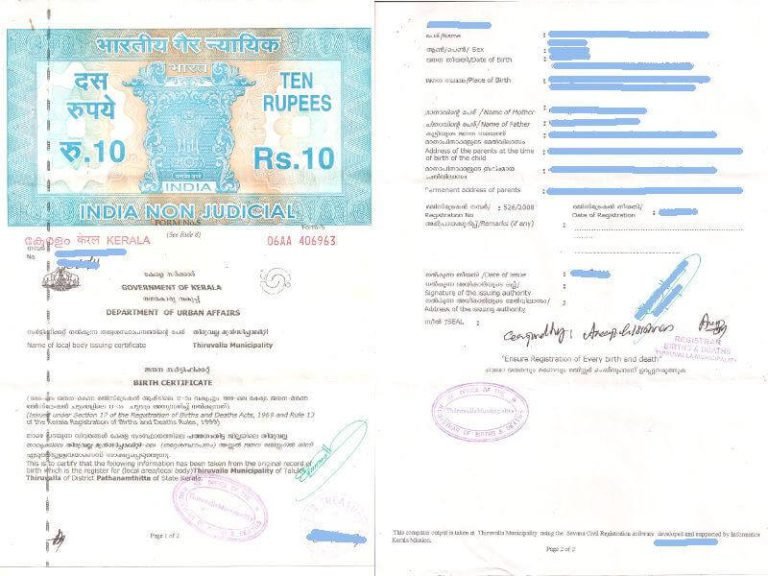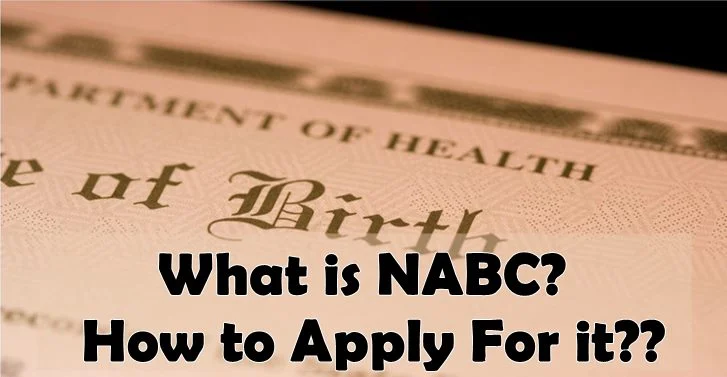GST REGISTRATION
APPLY ONLINE FOR GST REGISTRATION WITH LEGALDOCS ADVISOR
Registration under the GST Law means obtaining a unique number from the tax authorities to collect tax on behalf of the government and to claim Input tax credit for taxes on inward supplies.
Easy Process and Documentation
Required Paperwork
- Electricity Bill
- Property Tax Receipt
- Lease / Rent Agreement
- Passport Size Photo
- Incorporation Certificate
- PAN Card
- Aadhaar Card
Process, Service Charges, Time duration
- When you send us your paperwork, our experienced staff will review your paperwork with local government officials to determine the service’s cost, feasibility, and completion date. After a quote has been given, it remains fixed. Location affects project duration and cost. Send us your documents and specific requirements to get a price and turnaround estimate.
- On an average Procurement takes four to six weeks.
2000+ locations Served
Happy Clients 50000+
Averge Google Rating 4.9
India's Most Trusted Legal Documentation Portal
WHAT EXACTLY IS GST?
The majority of products and services that are brought into the country for personal use are subject to a value-added tax known as the goods and services tax (GST). It is a tax on consumption of goods and services that is depending on the location of the purchaser. It is proposed that it be levied at each stage, beginning with the manufacturing process and continuing all the way up to the ultimate consumption, with a credit for taxes paid at earlier stages being offered as a setoff. In a nutshell, only value addition will be subject to taxation, and the ultimate consumer will be responsible for bearing the burden of taxation.
The Indian government brought the One Hundred and First Amendment to the Constitution of India into effect on July 1, 2017, which allowed for the introduction of the tax. The tax was intended to replace a number of different levies already levied by the Central and State governments.
The GST Council, which is comprised of the finance ministers of both the central government and each state, is in charge of determining the tax rates, rules, and regulations. It is anticipated that the Goods and Services Tax (GST) will transform the economy of the country, which is currently valued at 2.4 trillion dollars, by eliminating a number of indirect taxes in favour of a single tax. The Goods and Services Tax (GST) has different rates for different types of services and goods, ranging from 0% to 28%. It looks like your company is making sales. Consumers are the ones who foot the bill for the Goods and Services Tax (GST), but retailers are the ones who send it back to the government. In practise, the Goods and Services Tax (GST) brings in money for the government.
The one hundred and first amendment to the Constitution of India was put into effect by the Indian government on July 1, 2017, which resulted in the tax going into effect on that date. Existing numerous taxes levied by the Central Government and State Governments were consolidated into one payment.
The GST Council, which consists of the finance minister of the central government as well as all of the state governments, is in charge of determining the tax rates, rules, and regulations. The Goods and Services Tax (GST) is designed to replace a number of indirect taxes with a single, unified tax. As a result, it is anticipated that the GST will transform the economy of the country, which is currently valued at $2.4 trillion. Depending on the nature of the goods or the sort of service being provided, the tax rate for GST might be anywhere from 0% to 28%. It appears that you are making sales. Consumers are the ones who pay the GST, but businesses that provide goods and services are the ones that send it back to the government. In point of fact, the GST brings in revenue for the government.
The tax got here into impact from July 1, 2017 thru the implementation of One Hundred and First Amendment of the Constitution of India through the Indian Government. The tax changed current a couple of Central and State Government taxes.
REGISTRATION FOR GST ONLINE
The Goods and Services Tax, sometimes known as GST, is essentially an indirect tax that has been established in India to replace a wide variety of other taxes. Although the bill to allow online GST registration was approved by the Parliament on March 29, 2017, it did not go into force until July 1, 2017, in India. The threshold limit for GST registration was increased to 40 lakhs for those who supply goods and was lowered to 20 lakhs for those who supply services as a result of adjustments made during the 32nd council meeting. In addition to this, the North-Eastern States have the choice to select between 20 lakhs or 40 lakhs as their population limit. You will be issued a one-of-a-kind GSTIN after you have completed the registration process under this framework (Goods and Service Tax Identification Number). The Goods and Services Tax (GST) registration provides a number of benefits. You can also claim a credit for the input tax and collect the GST from people who receive your goods or services.
Just entering the Online GST portal is all that is required to complete the straightforward process of online GST registration. While it is simple to fill out the form using the GST online portal, you still need the assistance of professionals to ensure that the form is filled out with accurate information and that the documents are sent in the appropriate manner. Many of the taxpayers are unable to understand a select few of the terminology that are used throughout the drafting process for the Goods and Services Tax (GST) registration. Hence, the initial stage of GST registration should be done with the assistance of specialists, and here at Legaldocs, you will be able to acquire the assistance you need to complete the GST registration process in a way that is both straightforward and efficient.
Just entering the Online GST portal is all that is required to complete the straightforward process of online GST registration. While it is simple to fill out the form using the GST online portal, you still need the assistance of professionals to ensure that the form is filled out with accurate information and that the documents are sent in the appropriate manner. Many of the taxpayers are unable to understand a select few of the terminology that are used throughout the drafting process for the Goods and Services Tax (GST) registration. Hence, the initial stage of GST registration should be done with the assistance of specialists, and here at Legaldocs, you will be able to acquire the assistance you need to complete the GST registration process in a way that is both straightforward and efficient.
WHY SHOULD YOU CHOOSE US?
- Lowest Price Guarantee
- No Office Visit, No Hidden Cost
- Serviced 50000+ Customers
ONLINE GST CALCULATOR
On July 1, 2017, India became the first country in the world to fully implement the Goods and Services Tax (GST), which was designed to simplify India’s tax system and provide a single, uniform tax rate across the country. The goods and services tax, sometimes known as the GST, is segmented into the following four main categories:
1. The Integrated Goods and Services Tax, or IGST for short (Integrated Goods and Services Tax)
2. UTGST (Union Territory Goods and Services Tax)
3. The Central Goods and Services Tax, or CGST for short (Central Goods and Services Tax)
4. The State Goods and Services Tax, also known as the SGST (State Goods and Services tax).
Registration for the Goods and Services Tax (GST) is obligatory for each taxpayer who is deemed eligible for participation in the programme. Because India has a large number of different GST slabs—at least more than five of them—you will need to calculate values both with and without GST if you are dealing or working with a large number of items that fall under a GST Slab. This is because India calculates GST differently depending on whether the value includes or excludes the tax. With the online GST Calculator, you can compute either your gross or net profit based on the GST rates. Using a Goods and Services Tax (GST) calculator online helps save time and reduces the likelihood of making errors that are frequent among people when it comes to assessing the cost of products and services.
You may compute your SGST, CGST, and IGST tax requirements in a flash by using our straightforward and user-friendly online GST calculator.
You can now compute your GST by making use of our calculator.
DOCUMENT LIST REQUIRED FOR GST REGISTRATION
| Proprietorship | Private Limited | Partnership/ LLP |
|---|---|---|
| PAN Card of Owner | PAN Card of Company | PAN Card of Partnership |
| Aadhaar Card Of Proprietor | Aadhaar of All Directors | Aadhaar of Partners |
| Bank Details | Bank Details | Bank Details |
| Address Proof | Address Proof | Address Proof |
| MOA, AOA and Incorporation | Partnership Deed/ LLP Certificate |
THE ADVANTAGES OF GST REGISTRATION
- You have the legal right to collect taxes from your customers and pass the tax benefits on to your suppliers.
- The company becomes completely tax compliant.
- You can increase your profits by claiming the Input Tax Credit that you paid on your purchases.
- When opening a current account or a business account, the GST certificate can be used as one of the documents.
- If you have GSTN, you can easily apply for various state and central government tenders.
- Expand your business through various channels such as online, import-export, and so on.
- GST numbers are used to launch payment gateways and mobile wallets.
WHAT ARE THE DISTINCT TYPES OF GST REGISTRATION?
Transactions need to be categorised in accordance with the type of customer to whom the sale was made before they can be reported for Goods and Services Tax (GST). The following is a description of the two distinct types of GST registration:
A. Registration Under the Composition Scheme The Composition Scheme is designed for small taxpayers with the intention of making it easier for them to comply with their tax obligations. This system enables those taxpayers who are eligible to pay an amount of tax equal to a proportion of their annual revenue. Included in this category are cafes, retail stores, and trading companies. This will free taxpayers and businesses from the burden of collecting taxes from their consumers on an individual basis, in addition to adding the additional benefits listed below:
Instead of filing several monthly returns, you should file only one quarterly return.
Pay less in taxes, giving you an advantage over your competitors.
The Goods and Services Tax (GST) standards make it simple to keep accurate books of accounts and records.
In a nutshell, this type of customer operates a company that is both subject to the GST composition scheme and possesses a GST Identification Number (GSTIN).
The following are the requirements that must be met in order to qualify for registration in the GST Composition Scheme:
Must hold a valid taxpayer identification number.
Producers of goods, dealers, and restaurants (not serving alcohol) that meet the requirement of having an annual turnover of less than one crore rupees are eligible to participate in this scheme.
B. Registration as a Casual Taxable Person: A Casual Taxable Person is a person who supplies taxable goods or services occasionally, such as an event management company that organises events in a number of different states. Before supplying or offering any goods or services, this type of person is required to register as a Casual Taxable Person for the specific taxable state in which they will be operating in.
If Mr. A runs a consulting business and provides services in multiple jurisdictions, he needs to register as a Casual Taxable Person in order for his company to be in compliance with the tax regulations of each state in which it operates.
PACKAGE INCLUDES
PACKAGE INCLUDES
| GST Certificate | GST invoice Template |
| GST Offline Invoice Software | GST HSN Codes and Tax Rates |
WHO REQUIRES A GST REGISTRATION NUMBER?
- Companies that have a yearly revenue of more than 20 lakhs rupees per year (Rs 10 Lakh for North Eastern States)
- In the event that a company operates in more than one state
- If your company has previously registered for VAT, excise laws, or service tax laws, you are exempt from these requirements.
- If you are supplying services and goods outside of India, you should consider selling your products or services online (through platforms such as Amazon and Flipkart, for example).
PENALTIES IMPLIED BY THE GST ACT
- If you do not have a GST registration, you must pay the full amount of tax or Rs10,000. Whichever is greater
- Failure to provide a GST invoice: 100% tax due or Rs10,000. Whichever is greater
Rs 25,000 for incorrect invoicing - Failure to file GST Tax Returns: Rs 20 per day for Nil Returns, Rs 50 per day for Regular Returns.
- Choosing the Composition Scheme even if you are not eligible: 100% of the tax due or Rs10,000. Whichever is greater













